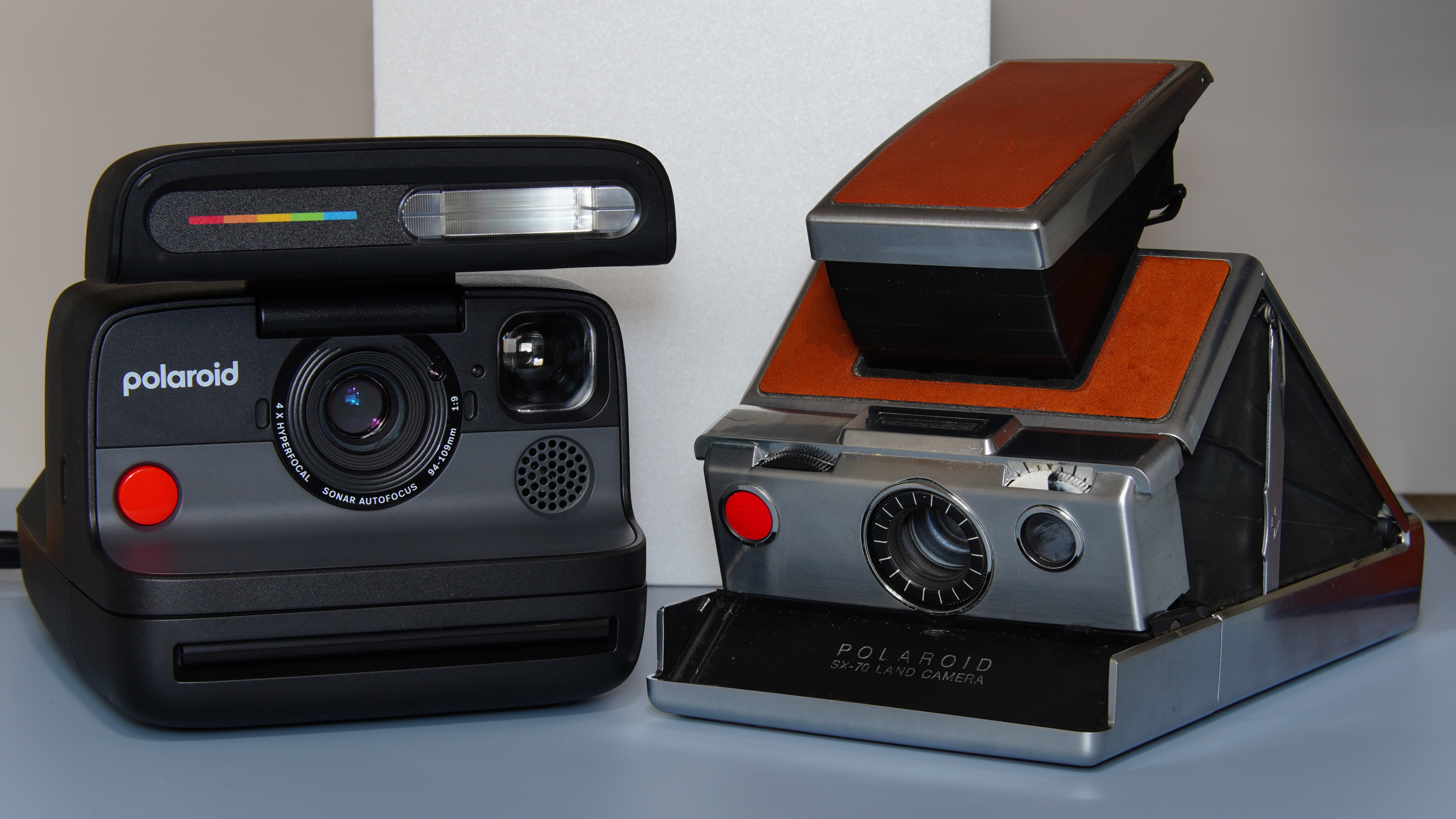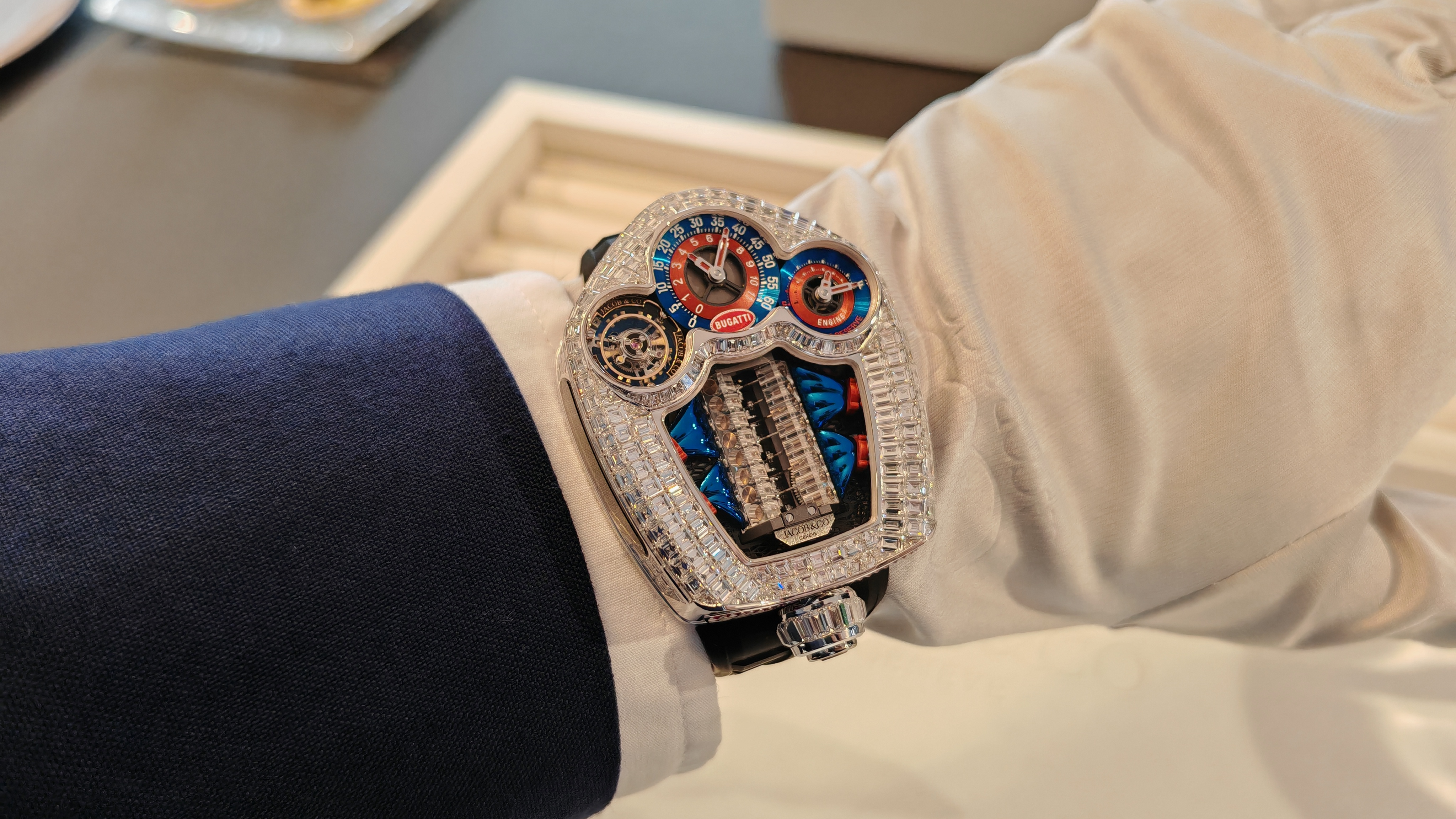

Jamie Carter
Looking to get up close and personal with nature's wonders? The best binoculars are your ticket to the front row of the great outdoors – and beyond. Here, we collected a wide variety of options, from telescopic wonders to portable models.
For budding astronomers, while binoculars can offer a stellar view of the night sky, nothing beats the best telescopes for stargazing. If you're keen on dual-purpose 'bins' for daytime birdwatching and moongazing, consider ones with large light-gathering objective lenses.
Our current number one binocular is Celestron's Nature DX ED 12x50. Its high magnification and light-gathering capabilities make it ideal for both nature spotting and stargazing. The Celestron Skymaster Pro 20x80, our second choice, is better suited for stargazing. If you're pulling out all the stops, check out Swarovski's excellent NL Pure 10X42 bins – the most premium option out there.
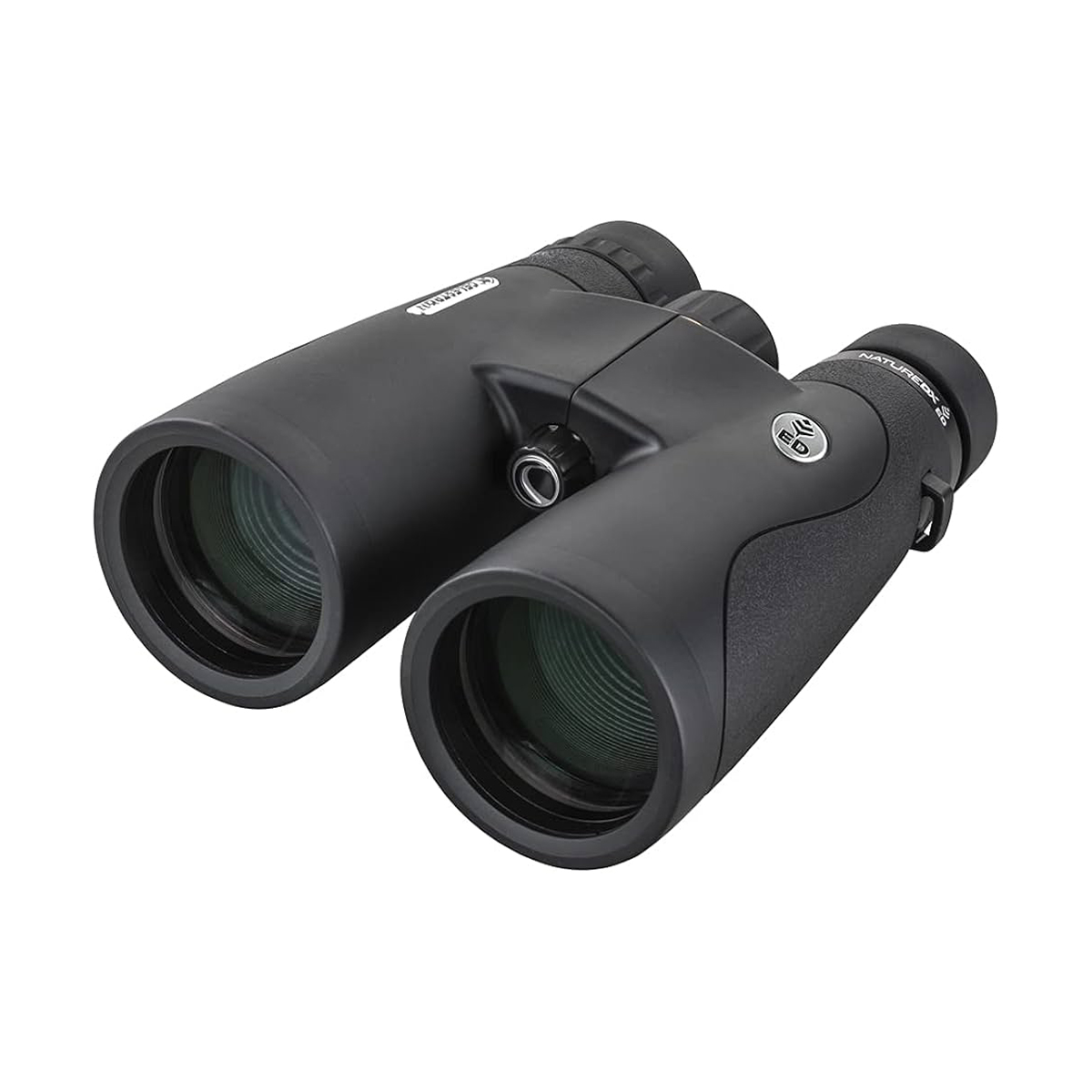
The Celestron Nature DX ED 12x50 binoculars offer high-end optics with Extra-Low Dispersion (ED) glass for sharper, clearer images, making them ideal for wildlife observation and stargazing. They're an excellent option offering outstanding performance for the price, though their eyecups could be improved.
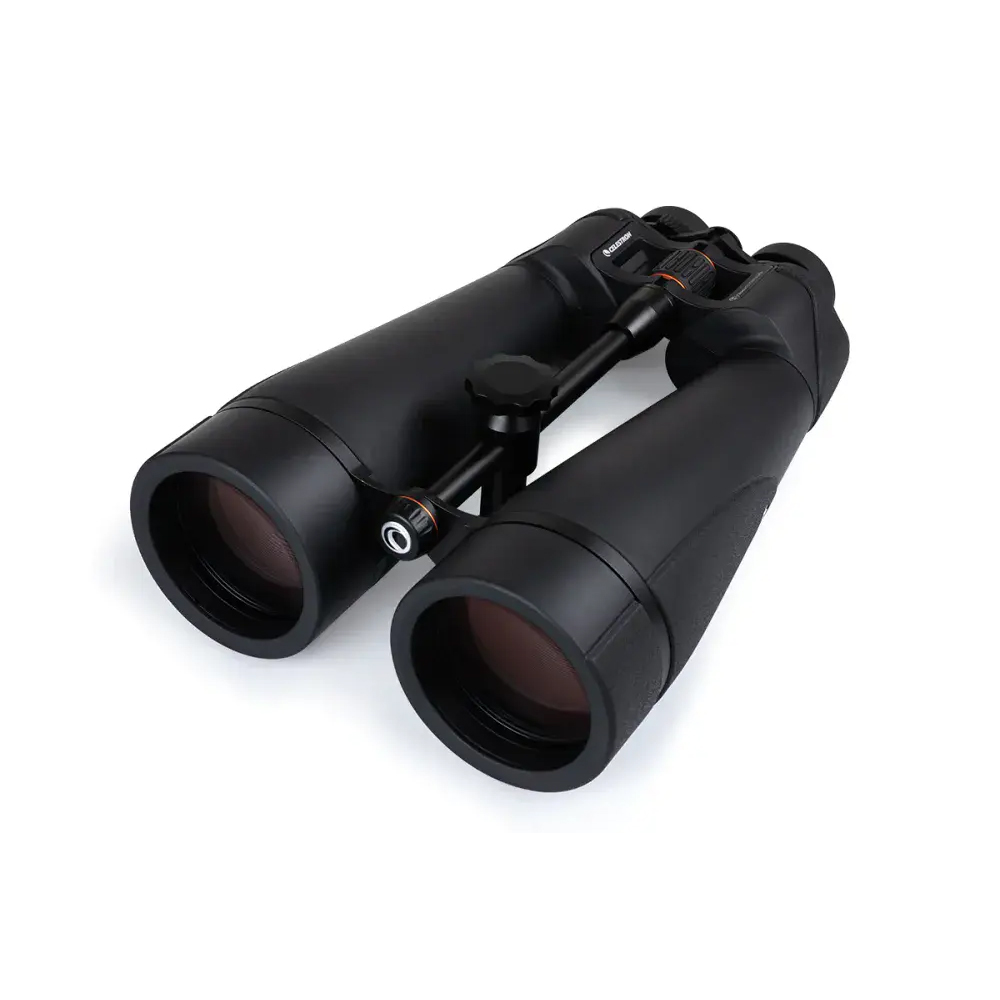
The Celestron SkyMaster Pro 20x80 binoculars are designed primarily for stargazing, offering 20x magnification and 80mm objective lenses. They provide bright, detailed views of celestial objects and are more portable than traditional telescopes, though they require a tripod due to their weight.
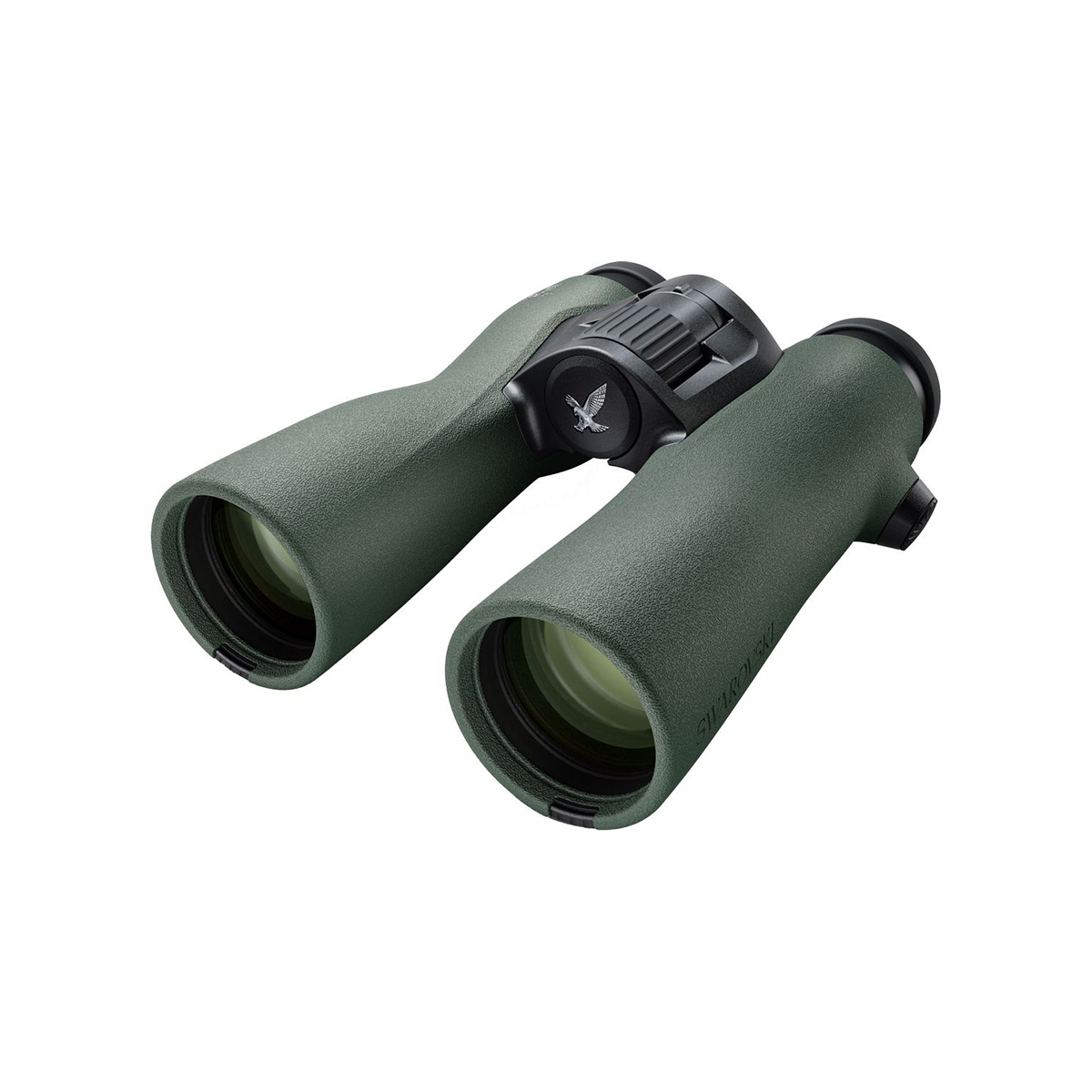
The Swarovski NL Pure 10x42 binoculars are premium optics ideal for birdwatching, wildlife observation, and spectator sports. They offer exceptional clarity, a wide field of view, and bright images even in low light. With a comfortable, ergonomic design, these binoculars are durable but slightly heavy, and their strap attachment can be awkward.
Best binoculars to buy now
Best overall
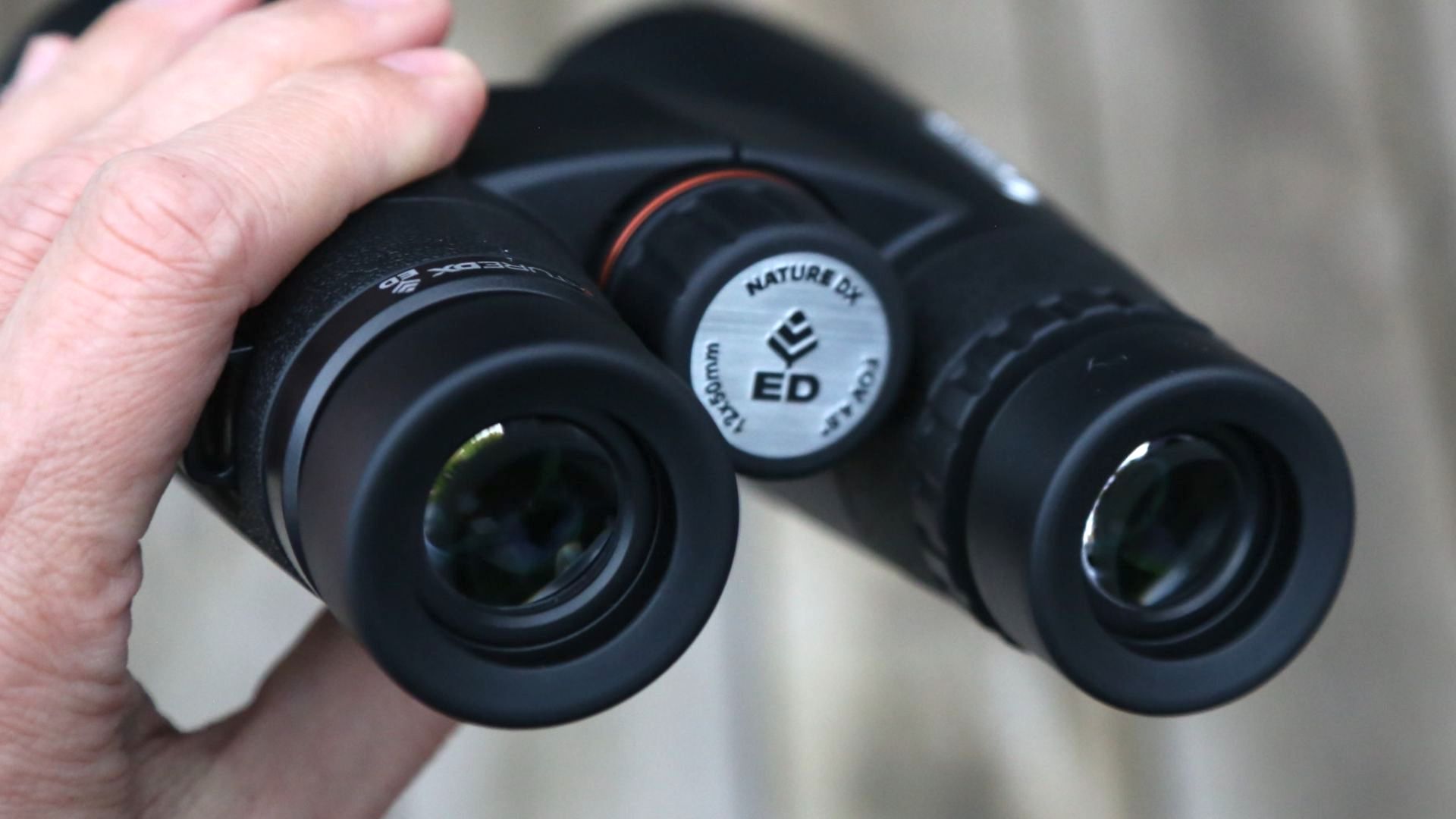

Specifications
Reasons to buy
Reasons to avoid
The best binoculars for most people right now are the Celestron Nature DX ED 12x50 binoculars. These roof prism binos upgrade on the award-winning Celestron Nature DX by adding Extra-Low Dispersion glass (that's the ED of the name) – and what an upgrade it is. ED glass is designed to get rid of chromatic aberration/colour fringing to deliver cleaner and sharper images, and in our Celestron Nature DX ED 12x50 binocular review our tester found this worked very effectively. The high magnification and light-gathering makes them ideal for nature-spotting, but also for a spot of stargazing – our reviewer achieved some exquisitely sharp views of the supergiant star Antares in his tests (check our binoculars vs telescopes for stargazing explainer if you're interested in the former). Alongside those high-end optics, you've got bullet-proof build quality and a compact (although not super-lightweight) design that's great for travel. Overall, an excellent pair of mid-market, all-rounder binoculars for the price-conscious connoisseur.
Best for stargazing
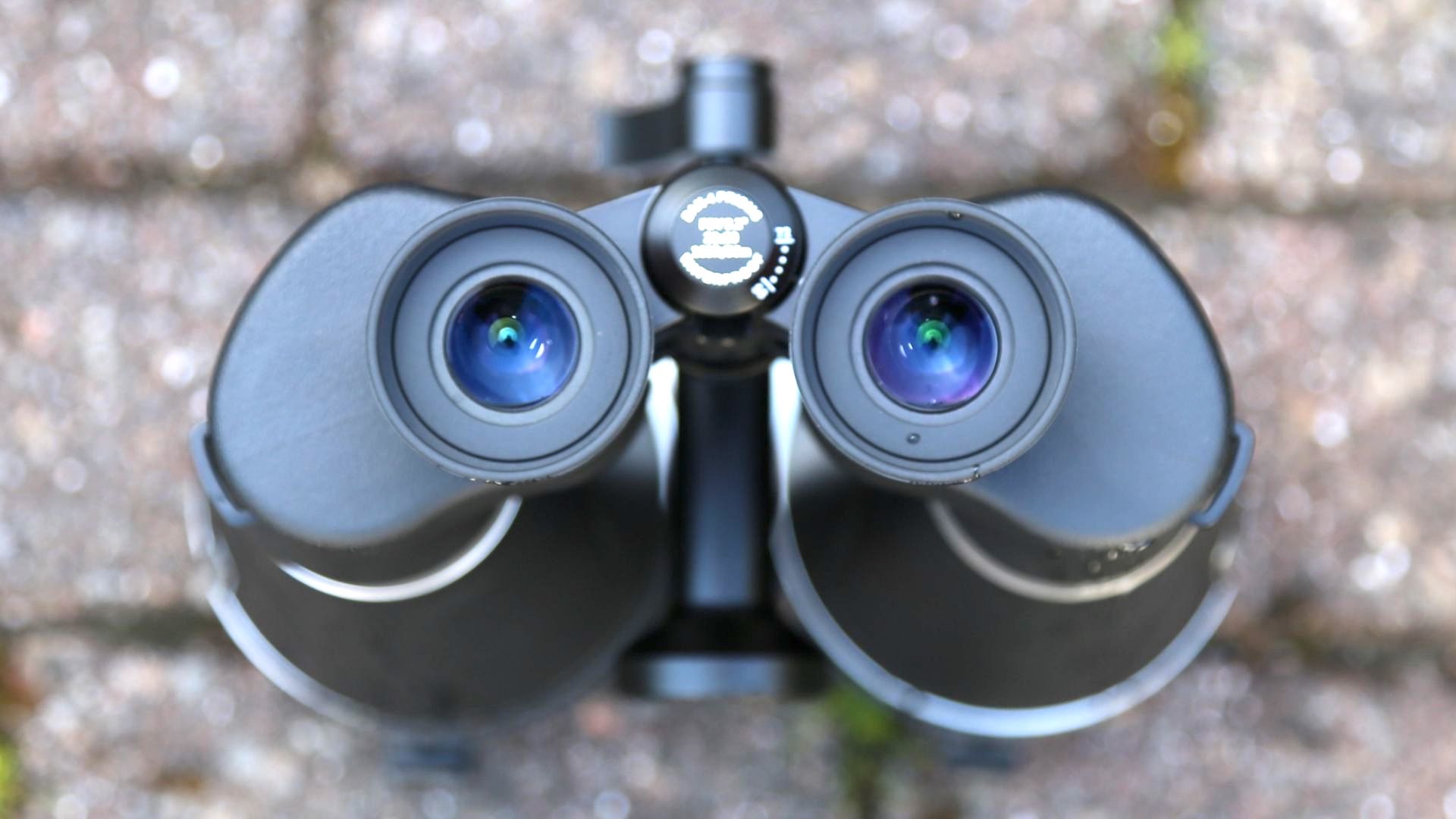

Specifications
Reasons to buy
Reasons to avoid
Binoculars don't come much bigger or heavier than Celestron's Skymaster Pro 20x80. These monster binos are made with one thing in mind – stargazing – and while binoculars might feel like second-best to telescopes when it comes to looking at the night sky, these will definitely give entry-level scopes a run for their money and then some. They're not made for holding; these binoculars have to be mounted on a tripod, and they come with their own adapter for just that purpose.
With 20x magnification and an 80mm objective diameter they'll give you great views of the Moon and deep sky objects, and while you'll need to know the night sky well to find distant objects, their easy-to-use centre focus knob makes it a cinch to get a sharp image quickly, much faster than you'd manage with a telescope. Find out more in our Celestron Skymaster Pro 20x80 binoculars review.
Best premium
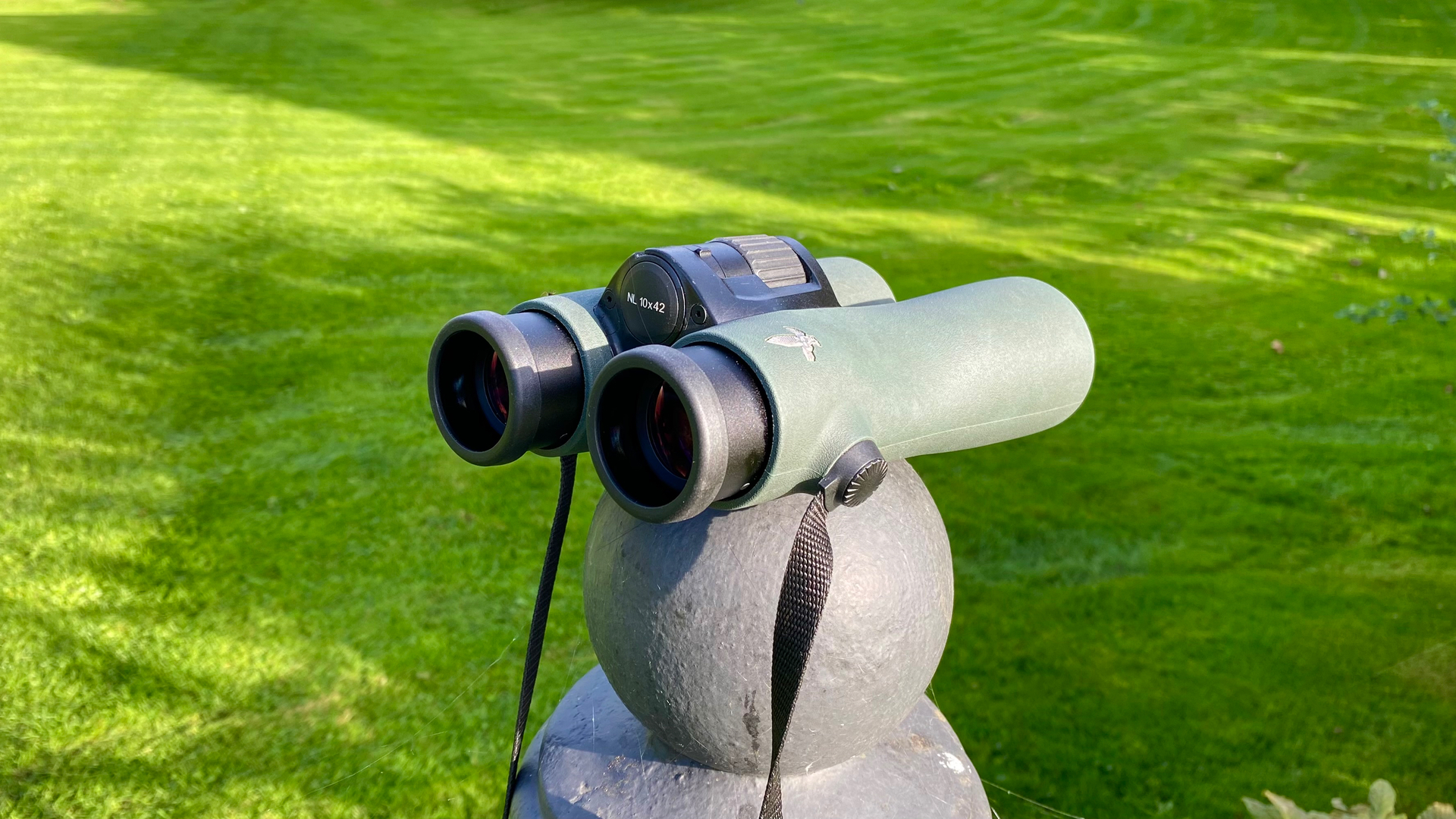

Specifications
Reasons to buy
Reasons to avoid
If you’re a committed birdwatcher, you will already know all there is to know about the Swarovski brand, partly because any discerning birder you share the experience with will almost certainly have a pair on them. After all, Swarovski binoculars are known for their class-leading pin-sharp, crystal-clear image quality, which is why they cost so much.
And there’s the rub. We would find it hard to justify spending upwards of two grand on a pair of binoculars unless our eyes were accustomed to spotting even the slightest differences between one pair of binoculars and another. Put another way, the judging of high-end binoculars is the visual equivalent of being able to distinguish the minor differences between various vintage wines. If you know, you know.
Read our full Swarovski NL Pure 10x42 review.
Best for beginners
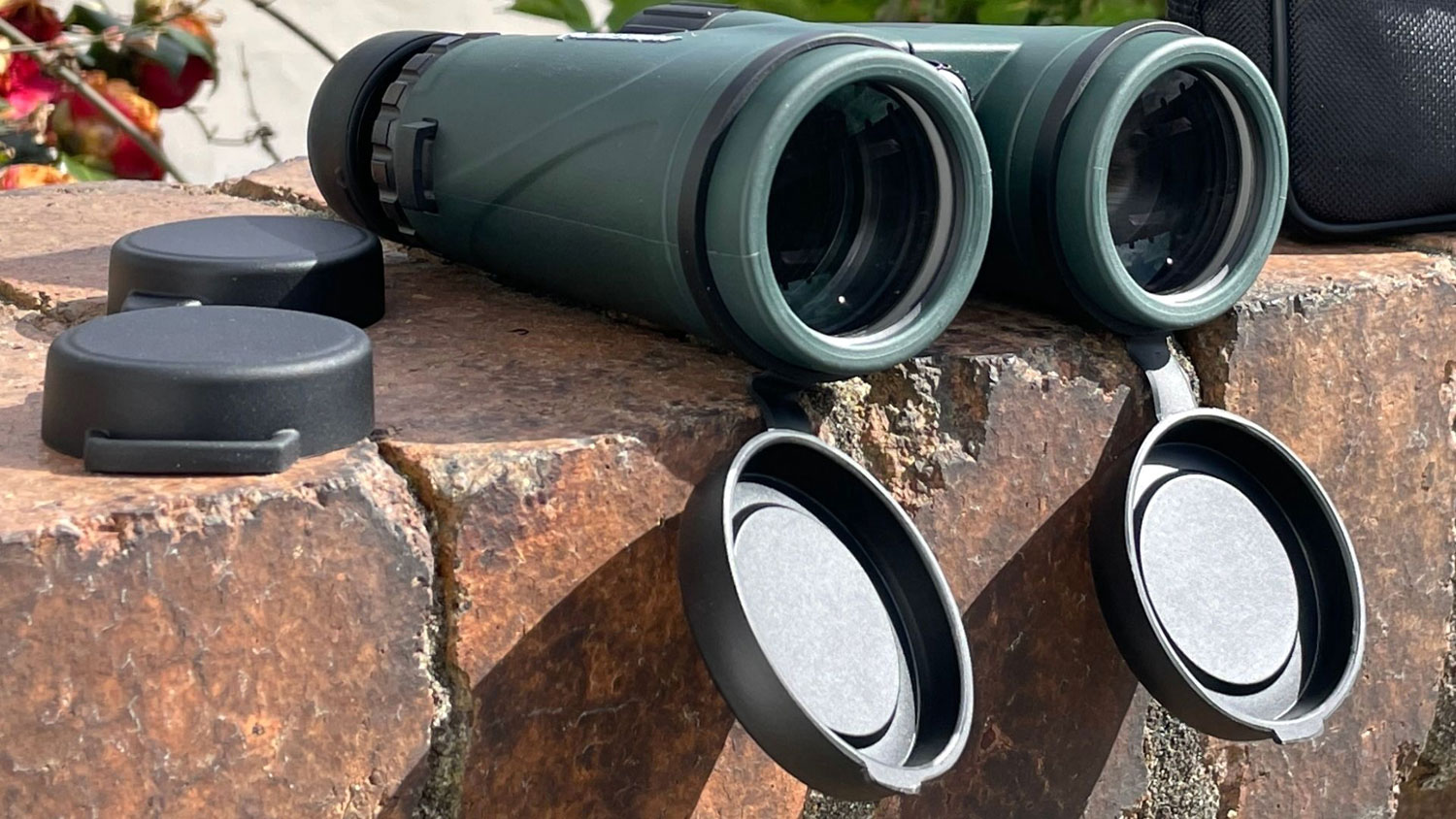

Specifications
Reasons to buy
Reasons to avoid
For fledgling nature spotters on a budget, the Celestron Nature DX 8x42 binoculars are a great choice. The design is very refined for the price point – in our Celestron Nature DX 8x42 binoculars review, our tester was particularly impressed with the focus knob and the fact that the lens caps are attached, so you can't lose them – and they're impressively light and compact compared to other 8x42 options. These are suitable for a range of activities and viewing types, and perform particularly well on bright days, although there is can be some very slight blurring around the edges. While they're okay for stargazing, if that's your priority, you should look elsewhere in this list. Overall, a good value pair of mid-range, full-size binoculars for all-round use.
Best rugged
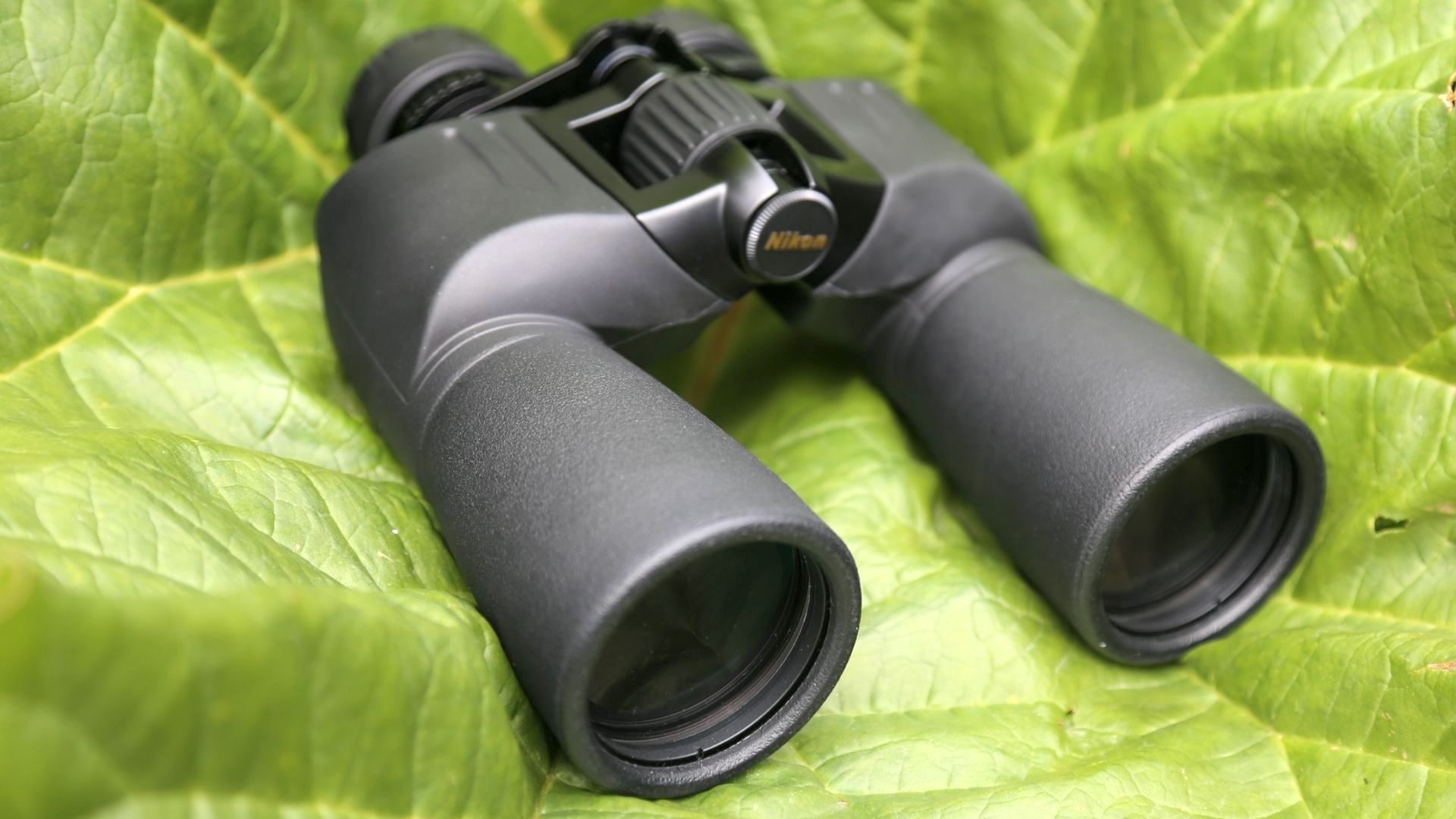

Specifications
Reasons to buy
Reasons to avoid
For the biggest, brightest and sharpest image at a reasonable price, it's hard to go wrong with Nikon's Action EX 12x50 binoculars; at least, as long as you've been keeping up with your gym membership. With large 50mm objective lenses and 12x magnification they provide killer views in most lighting conditions, but the big downside is their weight: at 1kg these are going to be tricky to hold steady for any length of time, and you'd be best off investing in a tripod to go with them (not to mention an L-shaped adapter).
They're tough and waterproof as well as fog-proof, and they deliver plenty of eye relief too. Suitable for safaris, birdwatching and even astronomy, if you can live with their bulk you'll find a lot to love about them. Find out more in our Nikon Action EX 12x50 binoculars review.
Best for sharpness
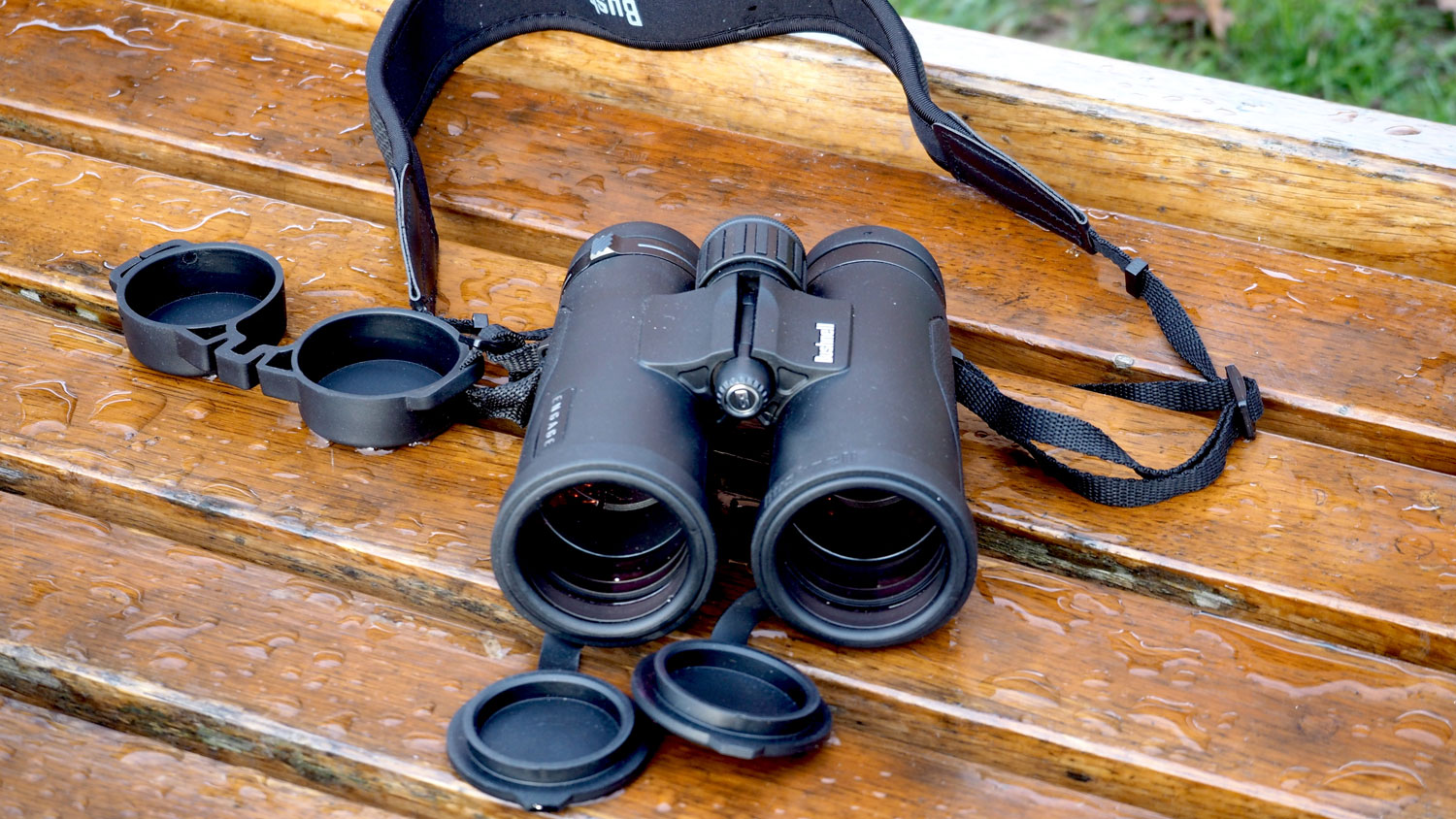

Specifications
Reasons to buy
Reasons to avoid
The Bushnell Engage EDX 8x42 deliver razor-sharp, bright, clear views, thanks to class-leading ED prime glass, complete with 'EXO' water- and oil-repellent lens coating. A rubberised outer ensures a slip-free grip, you can adjust the distance between the eyepieces to suit your face shape, and the build is compact enough to pop into a jacket pocket (although note, they're not the lightest bins on our list). There's a tactile central focusing wheel that allows for speedy and accurate adjustment, while the wide field of view lets you observe larger areas at a time. In our Bushnell Engage EDX 8x42 binoculars review, our tester did note some instances of purple fringing in high-contrast viewing scenarios, but that's a minor quibble. These are an otherwise solidly made, high-performing pair of binoculars.
Best for handheld stargazing
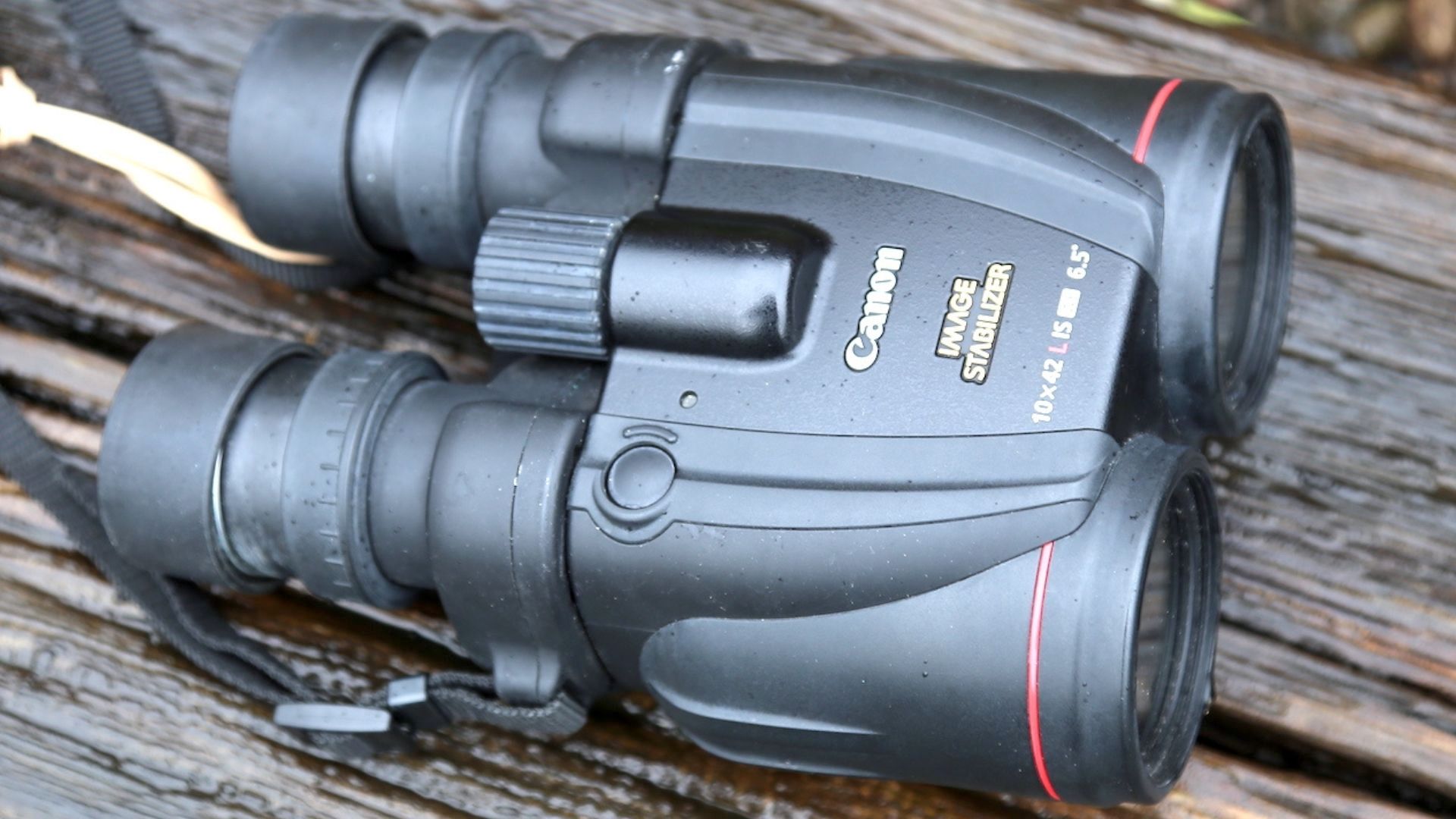

Specifications
Reasons to buy
Reasons to avoid
It’s difficult to keep binoculars still. Humans are hot and they all have the shakes, which is why binoculars with high magnification need to either be mounted on a tripod or use fancy image stabilisation (IS) technology. Equipped with 10x magnification and a 42mm objective lens, the Canon 10x42L IS WP deal have the best IS tech going. Its Vari-Angle Prism IS system uses a couple of gyro motion sensors to detect and measure the shake and actuators around the lenses to cancel-out it out. Activated at the touch of a button, the super-steady results are a thing of wonder. Almost perfectly still and glowing, the Moon suddenly looks drop-dead gorgeous, as do far-off star clusters, and by day, wildlife.
There are some downsides. At 1.1kg the Canon 10x42L IS WP are heavy, though they do include a 1/4-inch tripod thread on their undercarriage so can be easily mounted on a tripod. The 2xAAA batteries required for image stabilization feature quickly expire, so you'll need to arm yourself with spares, and the IS image can sometimes look a little blurry. Cast aside those foibles and make an investment because these remain near the pinnacle of stargazing binoculars. Head to our Canon 10x42L IS WP review for more info.
To explore two more great stargazing binocular options, head to our Celestron SkyMaster 25x100 vs Canon 18x50 IS AW face-off.
Best for brightness
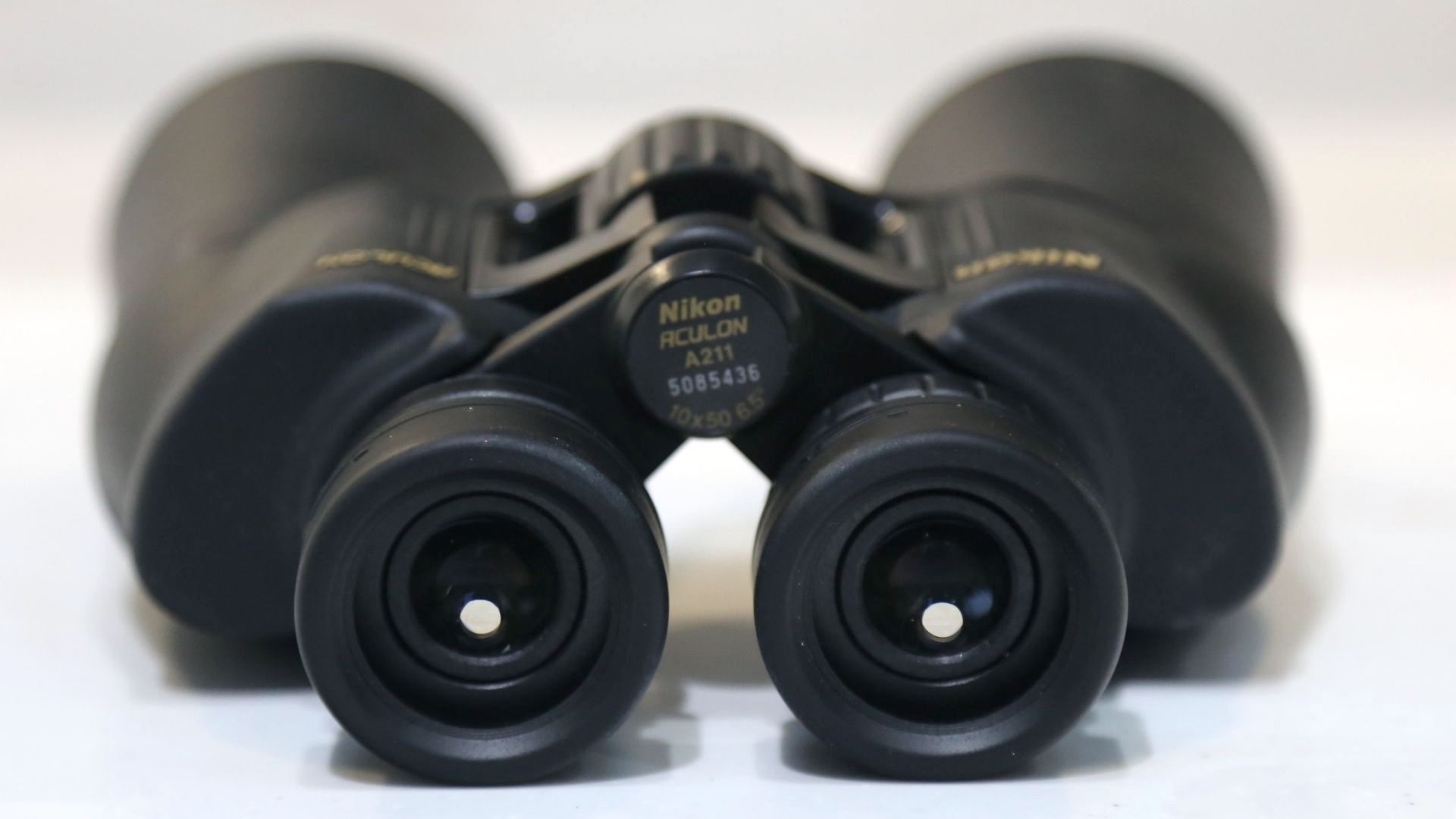

Specifications
Reasons to buy
Reasons to avoid
Like the Nikon Action EX 12x50 binoculars above, Nikon's 10x50 Aculon A211 binoculars are pretty hefty and best paired with a tripod and L-shaped adapter for extended use, but if you can live with that then you'll find that they're impressive all-rounders at a great price. Their porro prism design makes them wider than the average set of binos, but the images you'll get out of them make it all worthwhile; their 50mm objective lenses deliver big, bright and colourful results, and they're suitable for all manner of uses including birdwatching and stargazing.
They feel tough and built to last; the only real let-downs are a lack of close focus, with a minimum focal length of 7m, and annoying objective lens caps that are easy to misplace, not being attached either to each other or to the binoculars. And while they're not technically water-resistant, we had no problem taking them out in all weathers. Want to know more? See our Nikon 10x50 Aculon A211 binoculars review.
Best mid-range
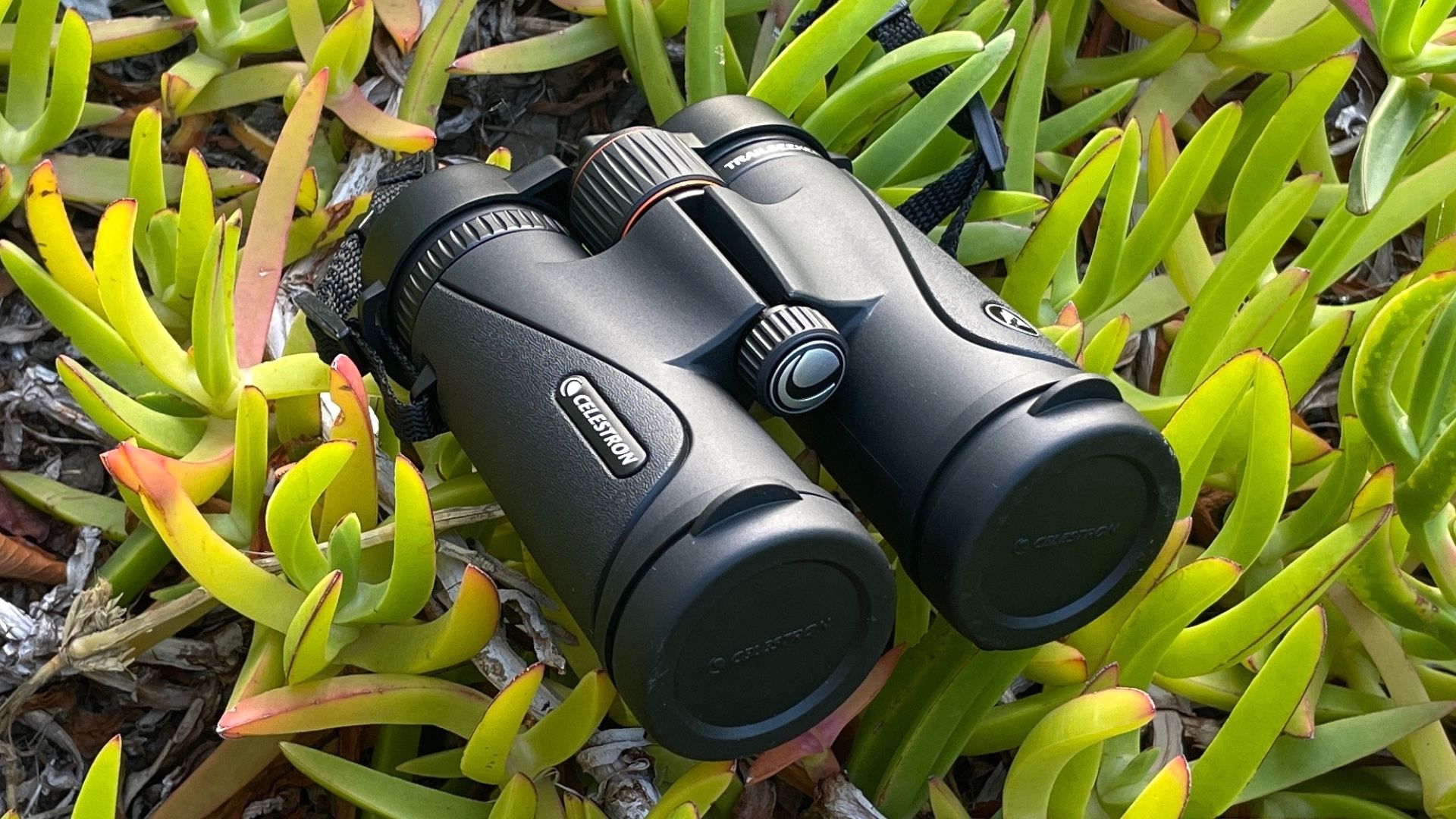

Specifications
Reasons to buy
Reasons to avoid
If it's value and versatility you're after, the Celestron TrailSeeker 8x42 make a strong case for being some of the best binoculars around. These roof prism binoculars use high-end, multi-coated BaK-4 glass to deliver crisp, bright close-ups of wildlife, landscapes, even in low light. In fact, you can use these to view celestial objects by night. They're also practical, with a solid solid magnesium alloy build, water- and fog-proof qualities. Add to that some good quality extras in the box – a particularly stout carrying case, and a very useful harness strap that takes the weight of the binoculars off your neck – and these are extremely good value for money. In fact, the only real downside is that the lens caps aren't the snuggest fitting. Check out our Celestron TrailSeeker 8x42 binoculars review for more info.
How to choose the best binoculars for you
It’s obvious that you get what you pay for. The more solidly made, waterproof and optically advanced binoculars are always going to cost the most, but there are plenty of affordable alternatives if you don’t mind making compromises. So our round-up includes both kinds of binoculars; maximum quality binoculars for crystal clear, steady and magnified images, and others designed to meet price-points.
Small binoculars: a lightweight, portable and compact pair of binoculars that can easily be stored in a jacket pocket is advisable for nature walks and hikes, though even then don’t underestimate the value of weather-proofing and anti-fogging features.
Mid-sized binoculars: for bird and wildlife watching in your garden go for something with more magnification as you’ll most likely be observing from a distance. If you can get them onto a tripod, even better, because hand-holding binoculars for long periods is tiring and means image-shake.
High-end binoculars: for low light observation and stargazing, a bigger, brighter lens is worth investing in. However, the tripod point remains because such models can be relatively heavy.
Considering how the above points apply to your viewing needs should help you quickly refine your choices when buying binos.
How we test the best binoculars
For the vast majority of binoculars featured in this guide, we'll call in a pair and get an expert to review them. Our binocular specialists – who have all tested dozens of pairs of binos, so have a good solid frame of reference to base their judgement on – will put them through their paces at home. They'll consider things like image quality, build quality, weatherproofing, ease of use, features and accessories included. They'll also look at what's included and how it compares to other options in the same price bracket, to get an idea of whether it's good value for money. Read more about how we test at T3.
FAQ
Porro prism vs compact roof prism
Which type of binocular is best?
There are two types of binoculars. Traditional porro prism binoculars have angular lens tubes, were first invented way back in 1854 and resemble something you might see a tank commander using in a WWII movie. This more vintage type offers classic looks and performance.
Roof prism binoculars offer straight tubes and a streamlined light path. This, more modern style, tends to be the most popular type, as the way the light passes into and out of the prism allows for a more compact construction, which means smaller, more portable binoculars.
The drawback is that the surface of the prism does not reflect 100 per cent of the light. By contrast, porro prism binoculars tend to offer a brighter image. Some users also like the fact that porro prism binoculars provide greater depth of image due to their glass elements being offset from one another, which makes them good for short-range birdwatching as well as more general viewing activities.
Ultimately, it’s a case of horses for courses and down to the user’s preference and budget. Broadly speaking, porro prism binos provide a brighter image quality at a lower price than their more sleek and streamlined roof prism brethren.
What's the best magnification for binoculars?
When you buy a pair of binoculars you need to understand two numbers: magnification and objective lens size, which are always quoted on every pair as a combination of two numbers – typically 8x25, 10x25, 20x56, 25x100 and so on. If the binoculars say 8x25 then they offer 8x magnification and have an objective lens with a diameter of 25mm.
In this case, both are small numbers, so the model is a portable, everyday pair of binoculars for general use in daylight. At the other end of the scale is a pair of bulky 25x100 binoculars – so 25x magnification and a 100mm objective lens – which are thus designed for looking deep into the night sky in darkness where maximum light-gathering is critical. If it's low-light viewing specifically you're after, check out our guide to the best night vision binoculars and goggles.
The difference in weight is startling; a pair of 8x25 bins will be super light, while 25x100 are too heavy to hold for more than a few minutes. The bigger the magnification the more likely you are to get a serious shake, too. So the answer is to go for something in between. Good middle-of-the-road sizes and 10x42, 10x50 or 15x 50, which have decent magnification and can be used in all light levels. Binoculars like these are practical and can be highly impressive. About 15x is perfect for a safari.
Is 10x50 or 20x50 better?
If you prioritise a wider field of view and ease of use, 10x50 binoculars are a better choice. However, if you prioritise higher magnification and don't mind a narrower field of view, 20x50 binoculars may be suitable for your specific needs.
10x50 binoculars offer a 10x magnification, meaning the objects you view will appear 10 times closer than they actually are. This level of magnification provides a good balance between image detail and field of view. They are generally easier to stabilise and use, making them suitable for various activities like birdwatching, wildlife observation, and general outdoor use.
20x50 binoculars, on the other hand, offer a higher magnification of 20x, making objects appear 20 times closer. While this provides more detailed views of distant objects, it also results in a narrower field of view and may require more stabilisation, like a tripod, to prevent image shake. These binoculars are suitable for activities where long-distance viewing is crucial, such as astronomy or surveillance, but they may not be as versatile for general-purpose use.
Sign up to the T3 newsletter for smarter living straight to your inbox
Get all the latest news, reviews, deals and buying guides on gorgeous tech, home and active products from the T3 experts
Gavin Stoker has been writing about photography and technology for the past 20 years. He currently edits the trade magazine British Photographic Industry News - BPI News for short - which is a member of TIPA, the international Technical Imaging Press Association.
-
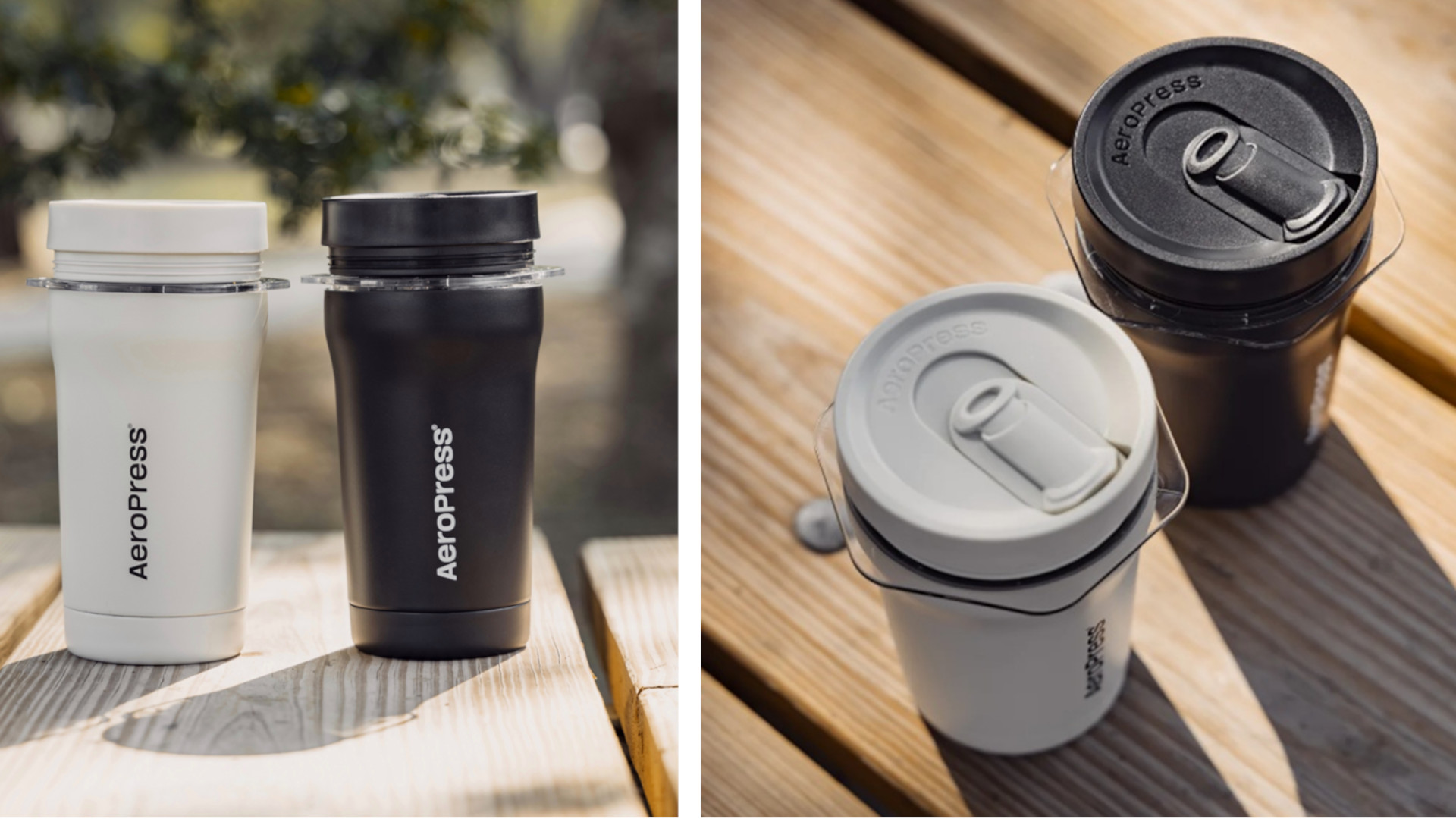 The AeroPress Go Plus is the gadget I need for my next outdoor adventure
The AeroPress Go Plus is the gadget I need for my next outdoor adventureWhether you’re off camping or heading on a hike, the new AeroPress Go Plus lets you enjoy great coffee on the go
By Bryony Firth-Bernard
-
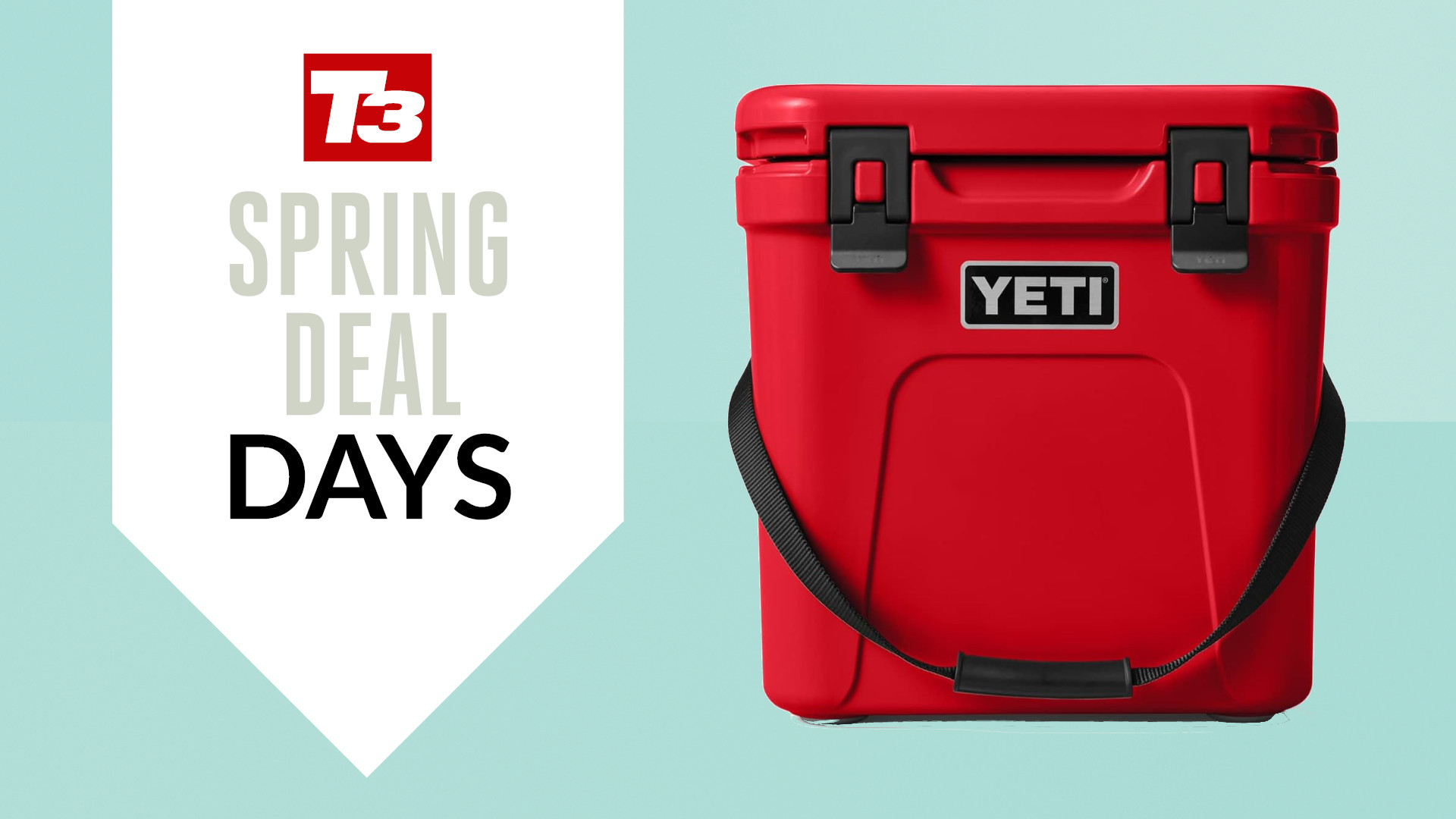 YETI has discounted a ton of its best-selling coolers and tumblers in Amazon’s Big Spring Sale
YETI has discounted a ton of its best-selling coolers and tumblers in Amazon’s Big Spring SaleJust in time for the warmer months
By Bryony Firth-Bernard
-
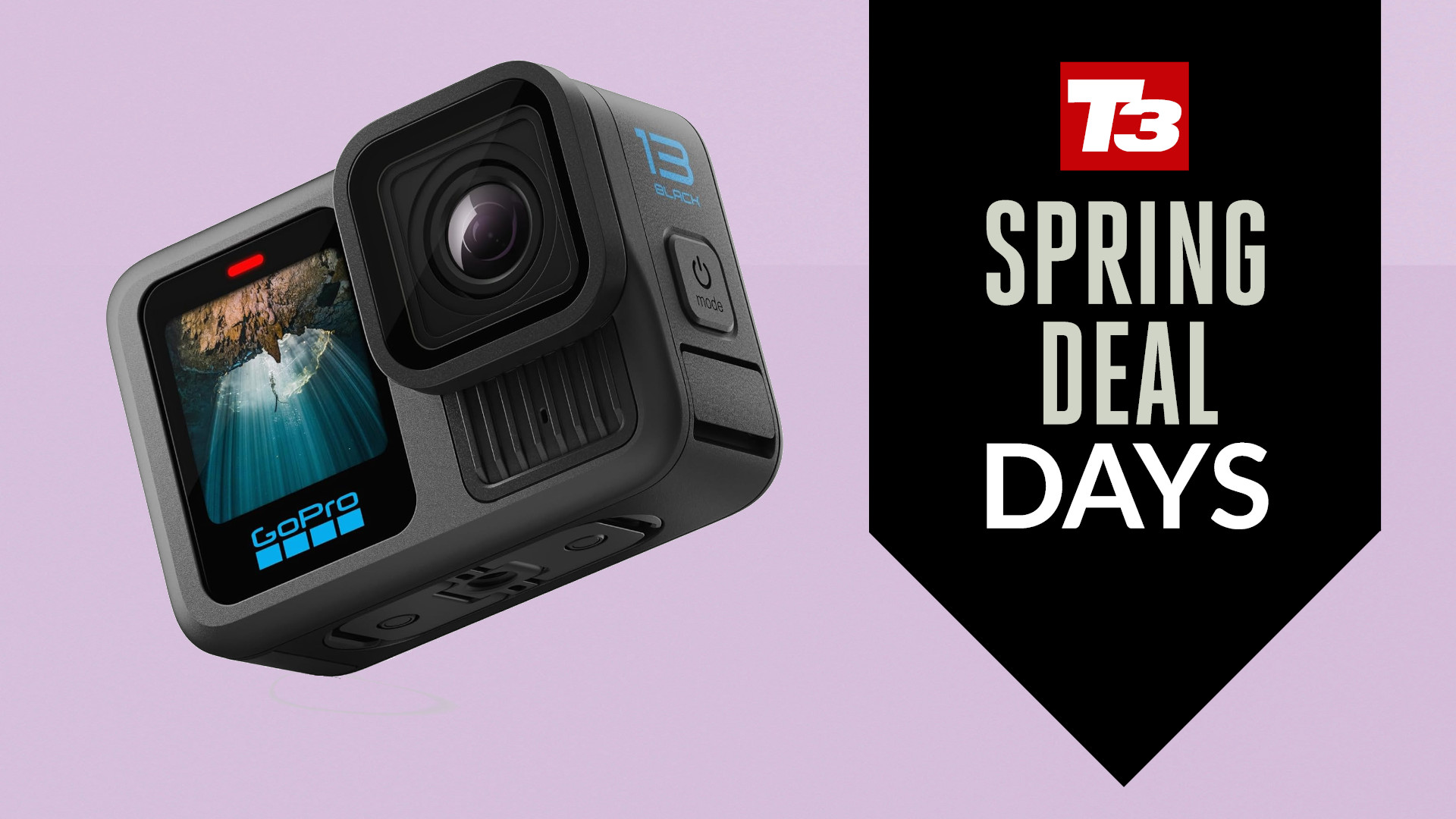 GoPro's latest flagship action cam just got a major price cut in Amazon's spring sale deal
GoPro's latest flagship action cam just got a major price cut in Amazon's spring sale dealYou can pick up the Hero 13 Black with almost 20% off
By Lee Bell
-
 How to pack your rucksack for a hiking or camping trip
How to pack your rucksack for a hiking or camping tripPack properly, save space and get easier access to the items you need the most
By Bryony Firth-Bernard
-
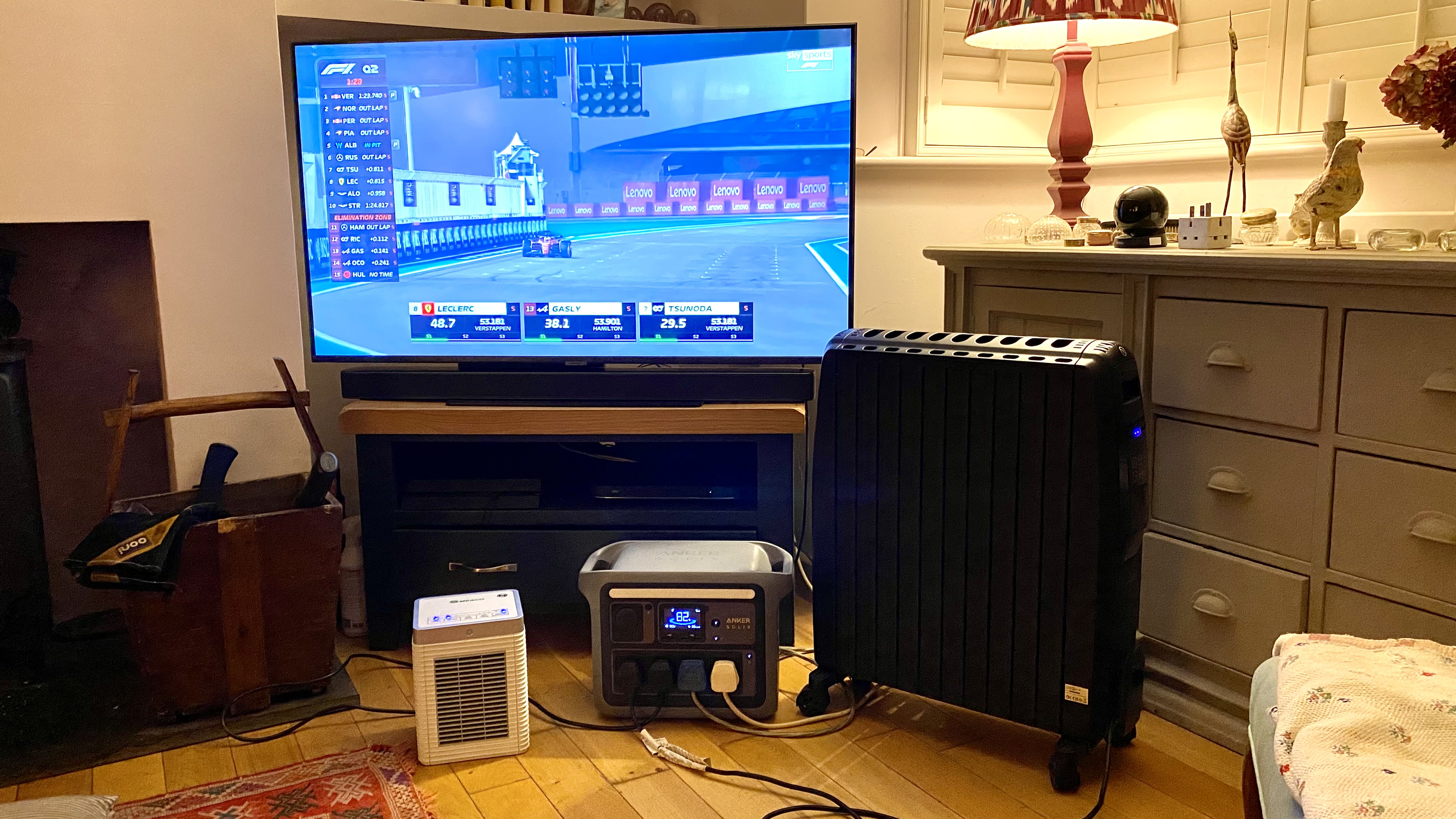 Change my mind: the smaller, the better with portable power stations
Change my mind: the smaller, the better with portable power stationsPut your portable power station to work when you’re not using it
By Derek Adams
-
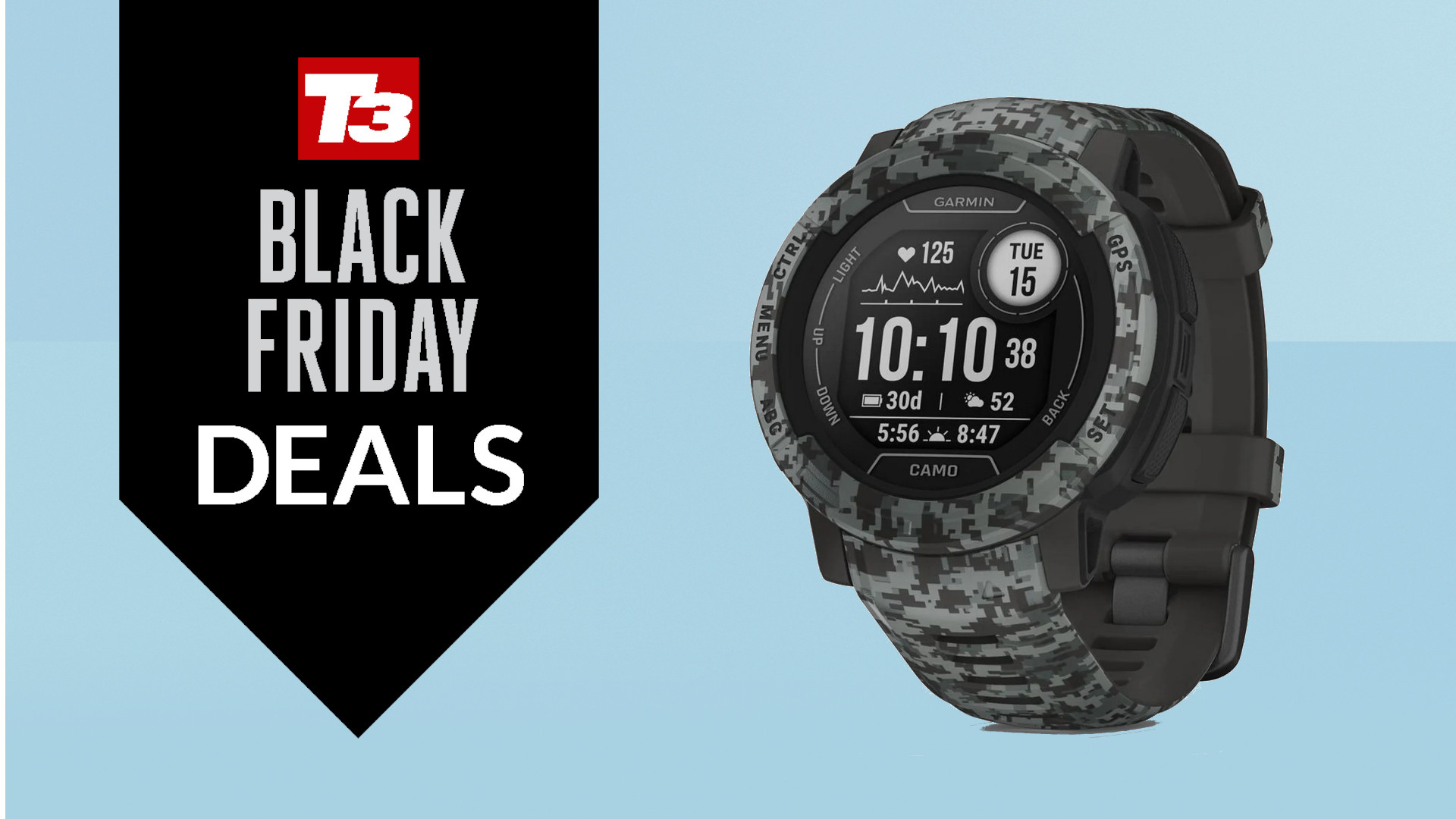 This rugged adventure Garmin is mega cheap in Walmart’s Black Friday sale
This rugged adventure Garmin is mega cheap in Walmart’s Black Friday saleThe Instinct 2 is a top watch for outdoor and sport enthusiasts
By Bryony Firth-Bernard
-
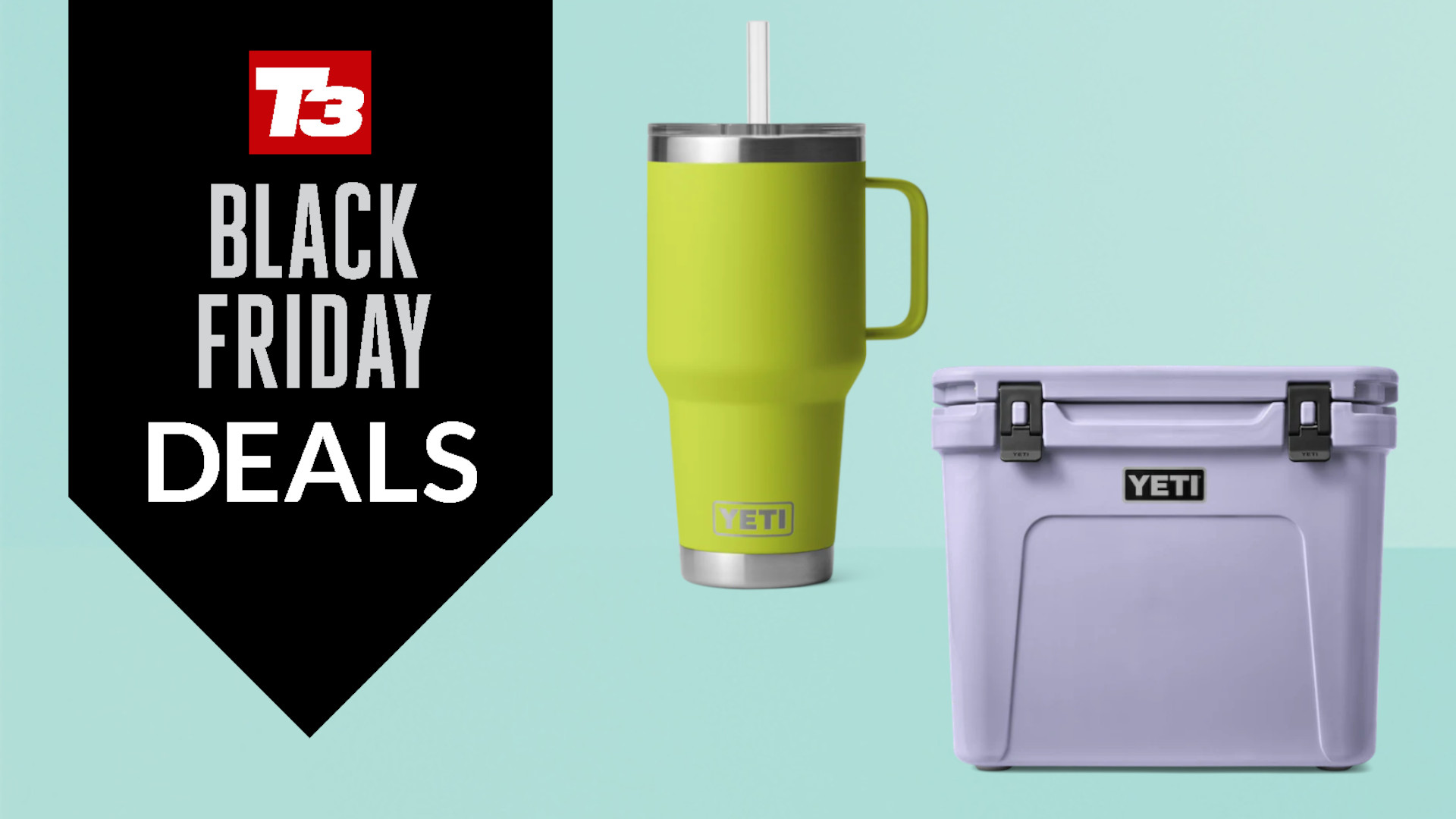 YETI’s best-selling products are ridiculously cheap in Amazon’s Black Friday sale
YETI’s best-selling products are ridiculously cheap in Amazon’s Black Friday saleFancy yourself a tumbler, rambler or cooler? Amazon's reduced them all
By Bryony Firth-Bernard
-
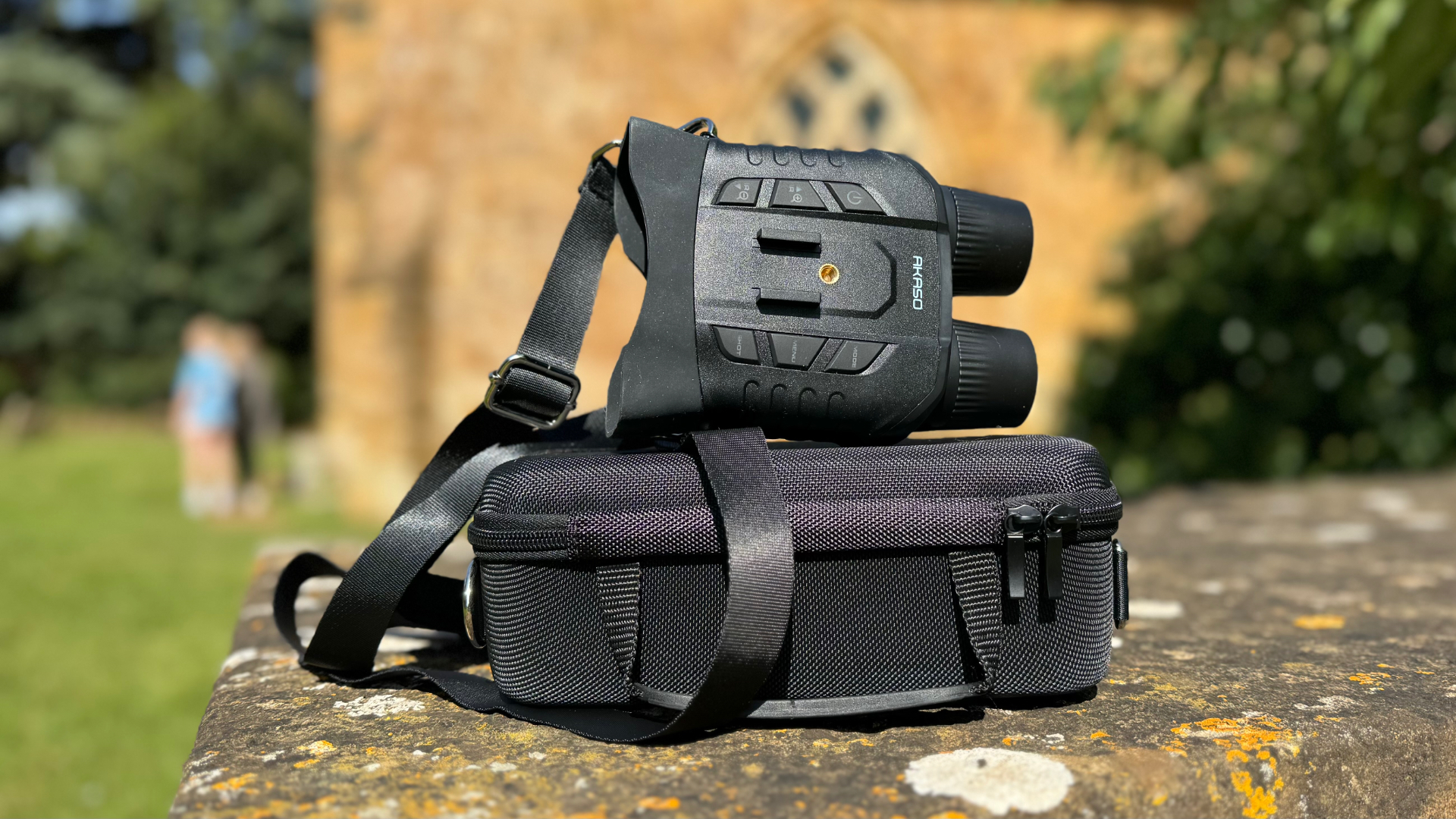 AKASO Seemor 200 night vision goggles review: unparalleled clarity for nighttime adventures
AKASO Seemor 200 night vision goggles review: unparalleled clarity for nighttime adventuresAKASO’s new NVD unlocks the night with cutting-edge colour vision technology
By Derek Adams
